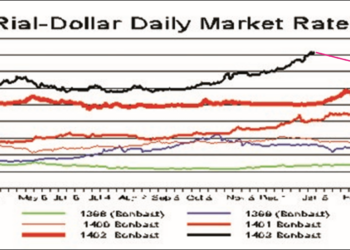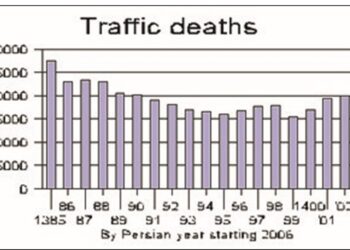October 30, 2020
Tehran says it has reached an agreement with Iraq to unfreeze Iranian assets frozen by US sanctions; the agreement has been billed in Iran as a major development and a huge hole punched in US sanctions.
In reality, however, all the Iraqis have agreed to do is allow Iran to use the frozen money to pay for Iraqi agricultural products and medicines, categories that are already exempt from US sanctions.
Central Bank Governor Abdolnasser Hemmati visited Baghdad and negotiated the deal. “Iran will use the freed assets to import basic goods,” he said October 12. The key term was “basic goods,” which means food and pharmaceuticals.
The assets will not be sent from Baghdad to Tehran. Iran will simply be allowed to draw on them to buy food and pharmaceuticals, just as it does in many other countries—especially in Europe. Actually, the key question is not why Baghdad loosened its hold and is now allowing Iran to buy food and pharmaceuticals. The key question is why Iraq had not allowed such purchases by Iran before.
Iran has large and growing assets frozen in Iraq because Baghdad pays into the frozen accounts for all the electricity and natural gas it buys from Iran under an exemption from sanctions that Washington has long granted to Iraq. Hemmati said the Iranian assets frozen in Iraq now total “more than $5 billion.”
Asked why Iraq was freeing up some of the assets now, Hemmati said they had been hung up due to “technical issues with Iraqi lenders” rather than US sanctions. He didn’t explain what that meant.
Iraq buys about one-third of all the electricity it uses from Iran. It also buys natural gas from Iran to run three electricity-generating plants.
Baghdad is chronically behind in its payments for those imports, but it isn’t clear what Iraq owes as of now. In June, Iran’s Energy Ministry said Iraq owed $800 million for electricity. In February of last year, Iran said Iraq owed $2 billion for natural gas.
Iran has said publicly that it is heavily focused on getting its funds frozen abroad unfrozen and returned to Tehran. But news reports over recent months have spoken only of talks with South Korea and Iraq. The South Koreans finally said no to Iran a few weeks ago. After Tehran claimed a settlement with Iraq, the Foreign Ministry said it had appealed to Japan to release frozen Iranian assets.













